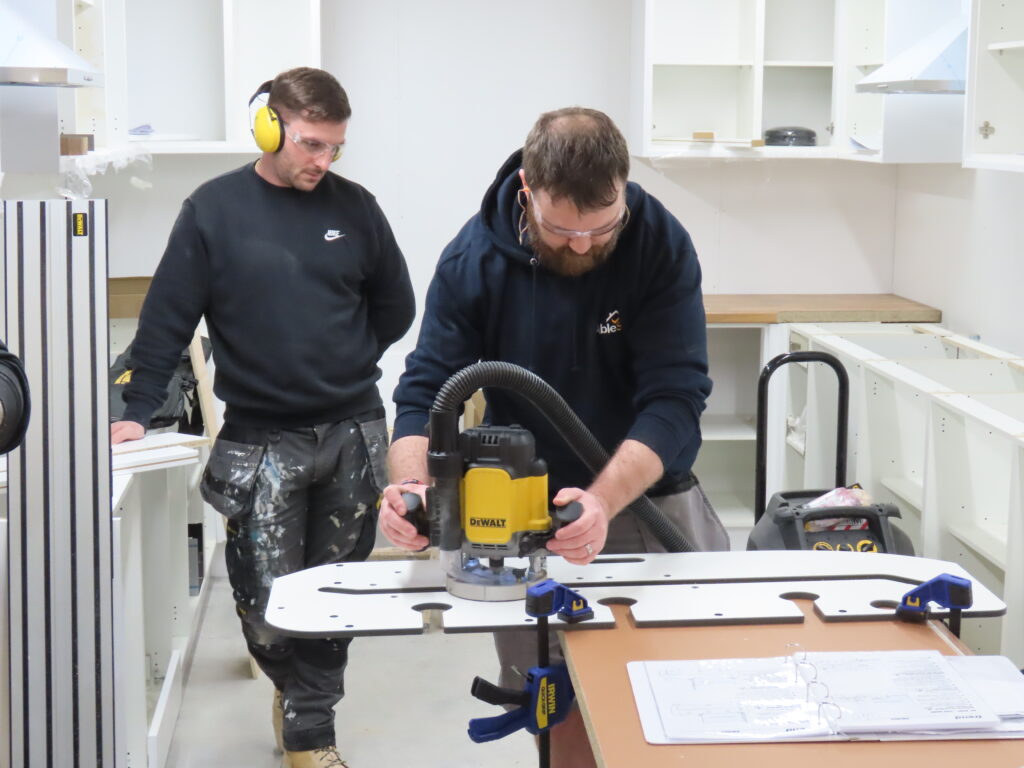Working as a kitchen fitter is a great career pathway for anyone looking for a profession that blends creativity with physical, hands-on work.
Possessing a vital skill in the home-building process, kitchen fitters often have busy work schedules, appealing career prospects — including the possibility of setting up their own business — and good earning potential.
Below, we’ll discuss all you need to know about becoming a kitchen fitter, ranging from training and qualifications through to potential progression.
What skills does a kitchen fitter need?
Naturally, one of the most important traits any kitchen fitter will need is to be comfortable working with their hands. Equally as valuable is attention to detail — this is crucial when it comes to completing jobs to a high standard and growing your reputation as a tradesperson.
Given how busy kitchen fitters often are, good timekeeping and organisational skills are also important, as is keeping on top of admin, particularly if you’re self-employed.
Being comfortable working in a team will serve you well when it comes to larger projects with other tradespeople involved. Similarly, being a good communicator is a handy trait, both for working with others and building relationships with your customers.
What training and qualifications does a kitchen fitter need?
While formal qualifications aren’t necessarily needed to begin taking on work, as is the case with many trades, formal training is advisable to get your career off to the best possible start.
Again, like most trades, the typical entry routes are through an apprenticeship, college course, or, if you’re looking for the most efficient pathway, through a private training provider.
How much can a kitchen fitter earn?
According to Checkatrade’s latest earnings data, the average salary of a kitchen fitter in full-time employment is £34,320. This figure jumps to £54,580 for sole traders and can reach as high as £70,800 for owners of a limited company.
What progression opportunities are available to kitchen fitters?
For kitchen fitters looking to progress their careers and potentially grow their earning potential, obtaining qualifications in linked trades such as tiling, plumbing or gas is a common next step.
Expanding into these sorts of areas, which often crossover into kitchen fitting, allows you to offer a fuller service, as well as stand out to potential employers.
Other progression routes for a kitchen fitter could include going on to become a site supervisor or project manager. Alternatively, you may wish to move into more specialist areas like shop fitting or focusing primarily on home design.

If you are interested in beginning your career as a kitchen fitter, then Able Skills offers a short, intensive 5-Day Kitchen Fitting course, aimed at those looking to take their first steps in the industry. This course will teach you the core skills needed to fit a kitchen, helping you to form a strong base to build on with more advanced training.
 Tiling
Tiling
 Plumbing
Plumbing Multiskills
Multiskills